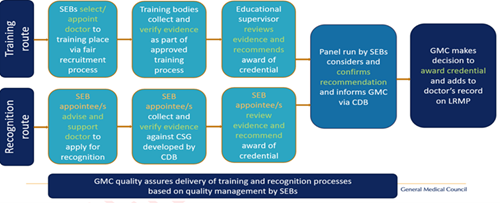Introduction
In September 2020, work began in partnership with the General Medical Council on the development of a Credential in Rural and Remote Health focusing on unscheduled and urgent care. The credential was developed in partnership with stakeholders across the UK. The curriculum has now been approved by the GMC and has been published on their website.
The purpose of the Rural and Remote Health curriculum is to provide a supportive training framework for General Practitioners (GP) on the General Medical Council (GMC) Register, and other doctors such as non-training grade doctors practising or wishing to practise in rural and remote contexts to provide unscheduled and urgent care in rural and remote hospitals and at the interface with the community.
The Credential in Rural and Remote Health (Unscheduled and Urgent Care) will address a service and patient safety need for General Practitioners and other doctors in non-training grade positions working in these contexts to extend and enhance skills that are not covered in specialty training. In doing so, the credential will support more flexible career development, facilitating credential holders to change career direction or enhance their skills and expertise in the provision of unscheduled and urgent care at the interface between primary and secondary care in remote and rural contexts.

Learning Methods
Aligned with “Excellence by Design”, the Rural and Remote Health credential curriculum is outcomes-based. Progression will therefore depend on capability rather than time. Attainment of the competencies may accordingly be achieved at different times depending on clinical placements as well as pre-credential experience and training.
The curriculum will be delivered through a variety of learning experiences and will allow learners to achieve the capabilities through a variety of learning methods. There will be a balance of different modes of learning from experiential learning ‘on the job’ to more formal courses. The proportion of time allocated to different learning methods will vary depending on the previous experience of the learner. Training will be constructed to enable learners to experience the full range of educational and training opportunities available and there will be robust arrangements for quality assurance in place to ensure consistent implementation of the curriculum.
Although training is generally expected to be experiential and most of the learning will take place in the learner’s place of work, there will be some aspects of training that cannot be met in the locality and the learner will be required to undertake blocks of supervised time in specialist centres or unit.
Entry Requirements
Eligibility for the credential encompasses a wide range of experience and different medical backgrounds.
The entry point for this credential will most commonly be:
While the focus of this credential is at the interface between General Practice and Rural and Remote small hospitals, it is recognised that some smaller hospitals may be staffed in part by doctors on the specialist register, and that their scope of practice may differ from their specialty postgraduate training. The credential may therefore also be suitable for these doctors.
For further details on entry requirements please refer to the credential curriculum document.
Routes to award of GMC credential
There are two routes for securing an award of a Credential in Rural and Remote Health (Unscheduled and Urgent Care):
To ensure that consistent standards are applied for doctors gaining the credential via either the learner or recognition route:
The figure below outlines the two routes to an award of the GMC credential

Recognition route
Doctors currently working within the scope of the credential and wishing to be recognised as credential holders will where possible submit evidence rather than complete further training in the workplace. This approach is both flexible and proportionate for doctors delivering service.
The recognition route is an entirely new process for acknowledging a doctor’s knowledge, skills, and experience against a number of credential specific capabilities in practice (CiPs) and procedural skills. Doctors who can demonstrate they meet the outcomes of a GMC (General Medical Council) credential can be awarded the credential by providing evidence instead of completing the credential training pathway.
Please see the Credential Specific Guidance document for details on the recognition route.
Further details on the Credential Pathway and how to apply can be found on the Credential Turas Learn page.
The Credential Team includes:
Dr Pauline Wilson - Associate Postgraduate Dean
Dr Marion Slater - Associate Postgraduate Dean
Suzanne Coulthard – Project Officer
Jennifer Gresham – Project Administrator
Contact us - nes.ruralremotecredential@nhs.scot
Related Links
Turas Learn
Curriculum Document
Curriculum User Guide
Recognition route
This page was last updated on: 20.03.2024 at 13.58